Human Rights Watch: Azerbaijan Repeatedly Used Widely Banned Cluster Munitions in Residential Areas in Nagorno-Karabakh (photo)
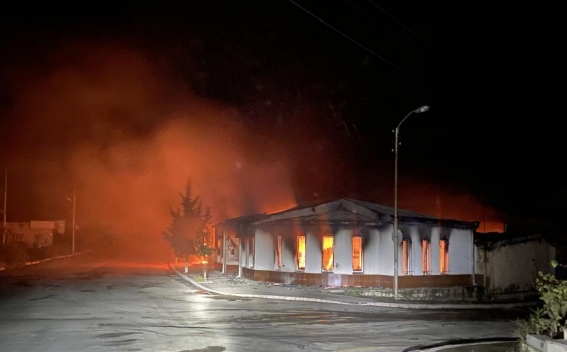
Azerbaijan has repeatedly used widely banned cluster munitions in residential areas in Nagorno-Karabakh, Human Rights Watch said today. During an on-site investigation in Nagorno-Karabakh in October 2020, Human Rights Watch documented four incidents in which Azerbaijan used cluster munitions.
"Fighting between Azerbaijan and Armenia and the de-facto authorities in Nagorno-Karabakh dramatically escalated on September 27, 2020. Two humanitarian ceasefires brokered by members of the Minsk Group of the Organization for Security and Co-Operation in Europe have failed to halt the fighting. According to authorities from all parties, scores of civilians have been killed or injured in attacks in Armenia, Nagorno-Karabakh, and Azerbaijan.
“The continued use of cluster munitions – particularly in populated areas – shows flagrant disregard for the safety of civilians,” said Stephen Goose, arms division director at Human Rights Watch and chair of the Cluster Munition Coalition. “Cluster munitions should never be used by anyone under any circumstances, much less in cities, due to the foreseeable and unacceptable harm to civilians.”
In the conflict over Nagorno-Karabakh, Human Rights Watch is investigating whether all sides of the conflict adhere to international humanitarian law, which requires armed forces to distinguish between combatants and civilians, and between military objects and civilian objects, at all times. As such, indiscriminate attacks are prohibited, including attacks which employ a method or means of combat which cannot be directed at a specific legitimate military target. Human Rights Watch has made repeated requests to the Azerbaijani government for access to conduct on-site investigations, but access has not yet been granted.
Human Rights Watch examined remnants of the rockets, impacts, and remnants of submunitions that exploded, as well as dud submunitions that failed to function at several locations in Stepanakert, Nagorno-Karabakh’s administrative center, which is called Khankendi in Azerbaijan. Human Rights Watch also examined photographs taken in the town of Hadrut of a rocket, impacts, and remnants of submunitions that exploded, and a dud submunition that failed to explode. Human Rights Watch also spoke to six people who witnessed the attacks. Azerbaijani officials have accused the Armenian side of using cluster munitions in this conflict, but Human Rights Watch has not independently verified those claims.
Residents of Stepanakert told Human Rights Watch that attacks using cluster munitions began on the morning of September 27 in a residential area no more than 200 meters from the office of the International Committee of the Red Cross," Human Rights Watch said.
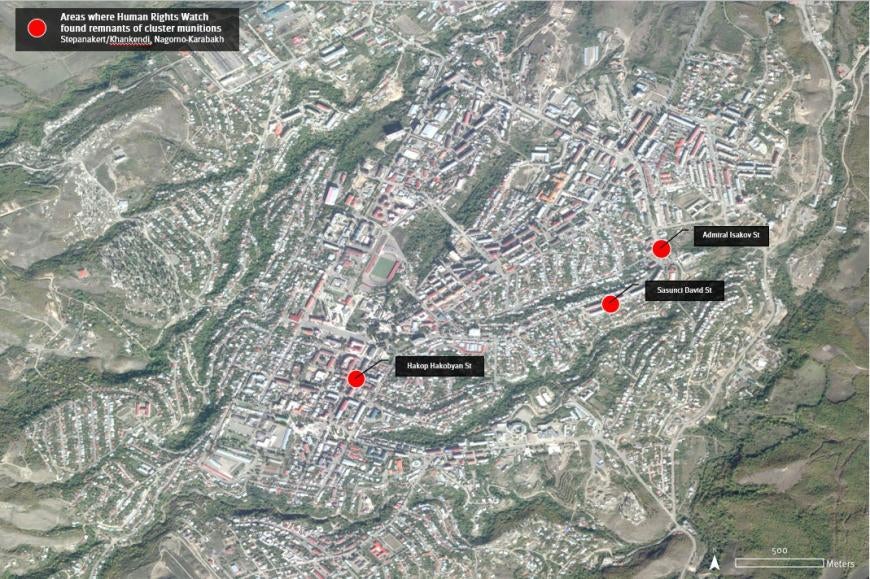
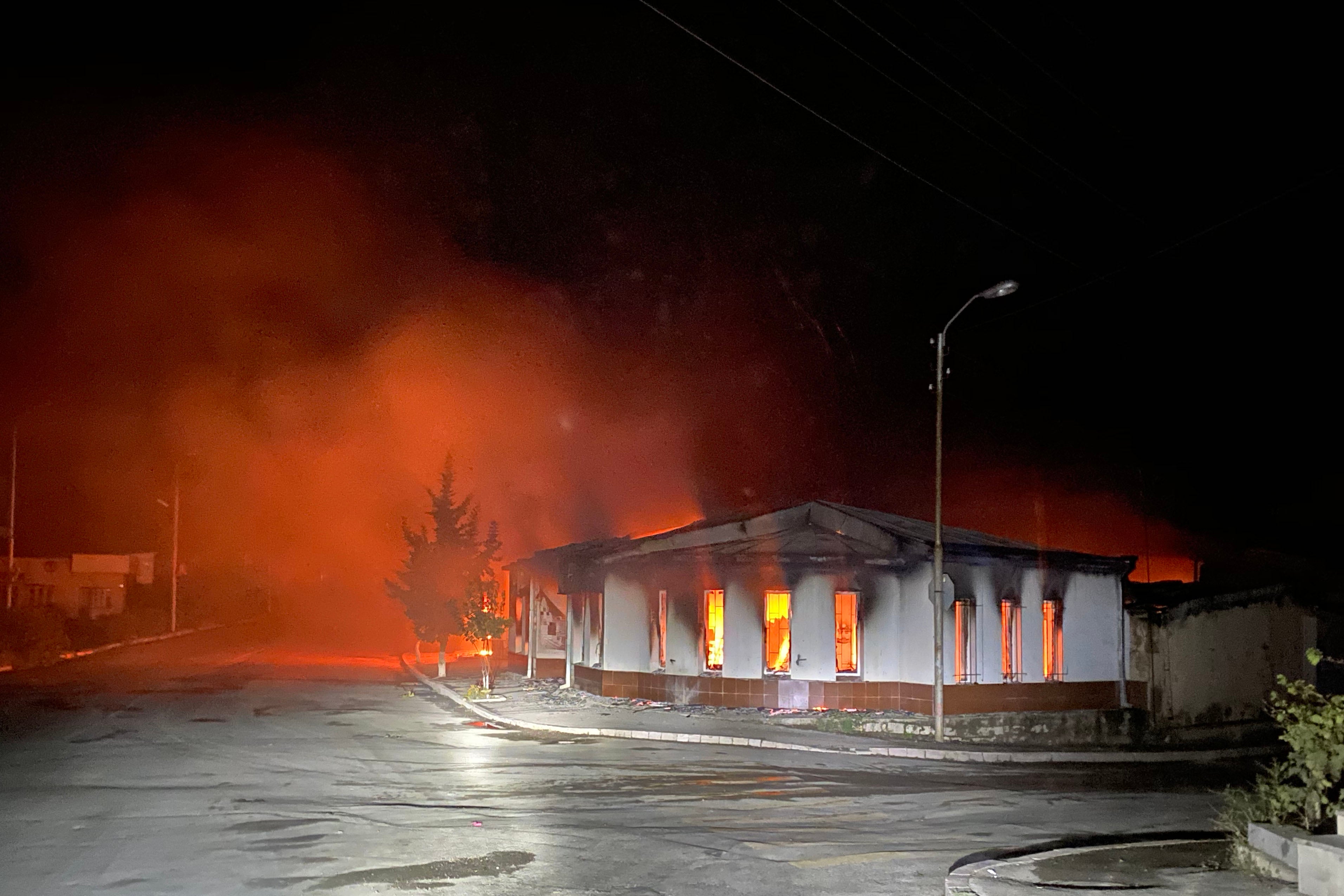
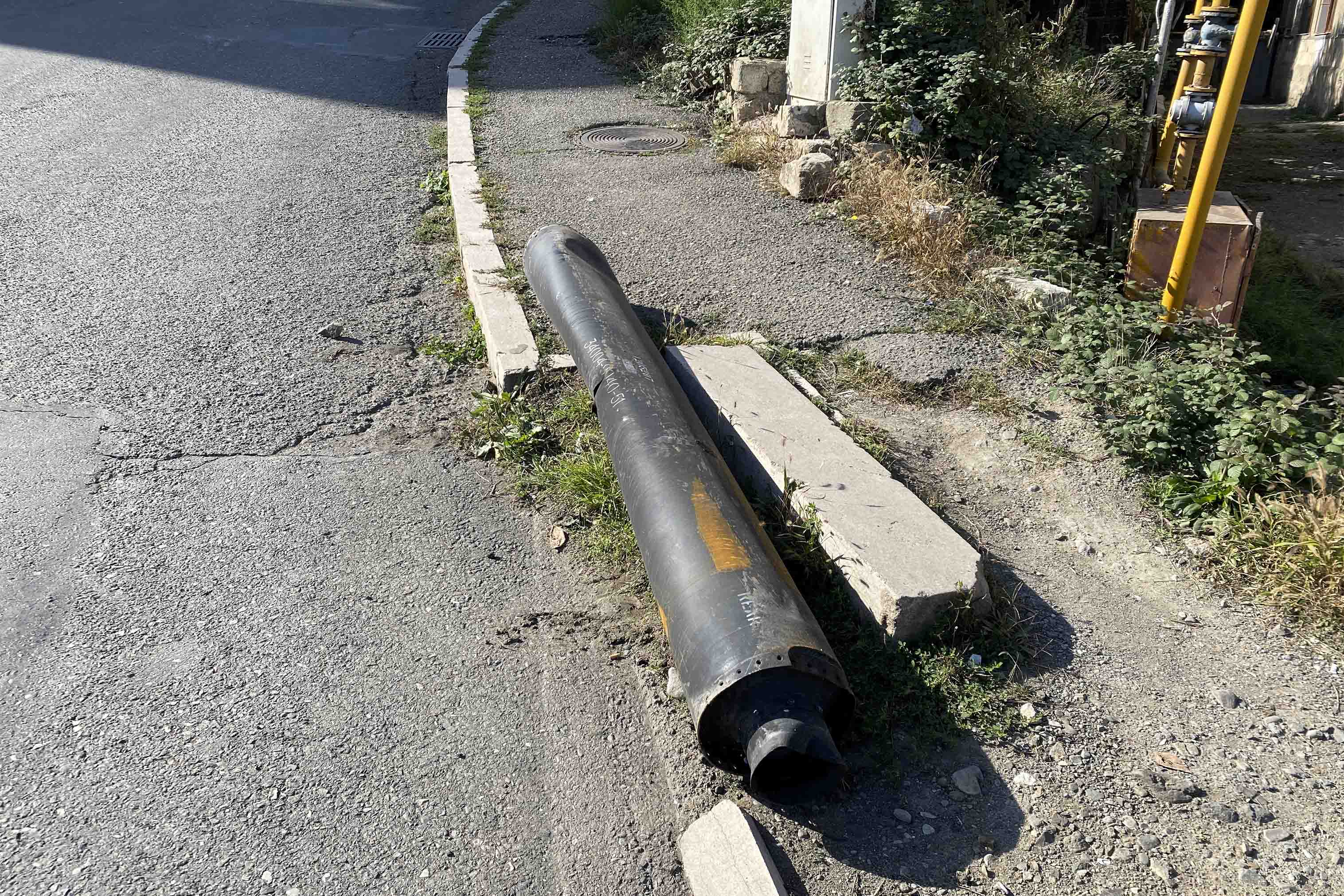
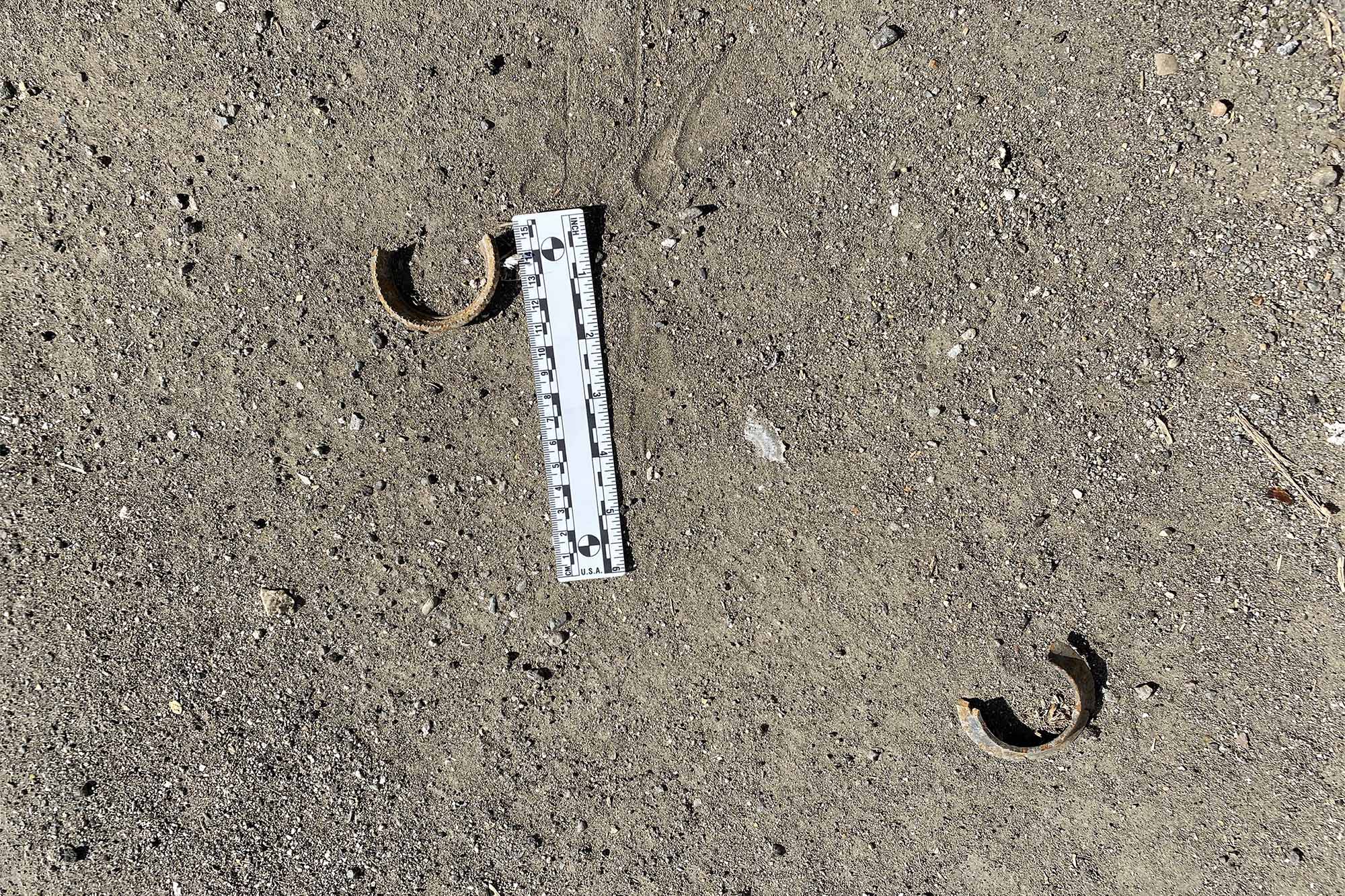
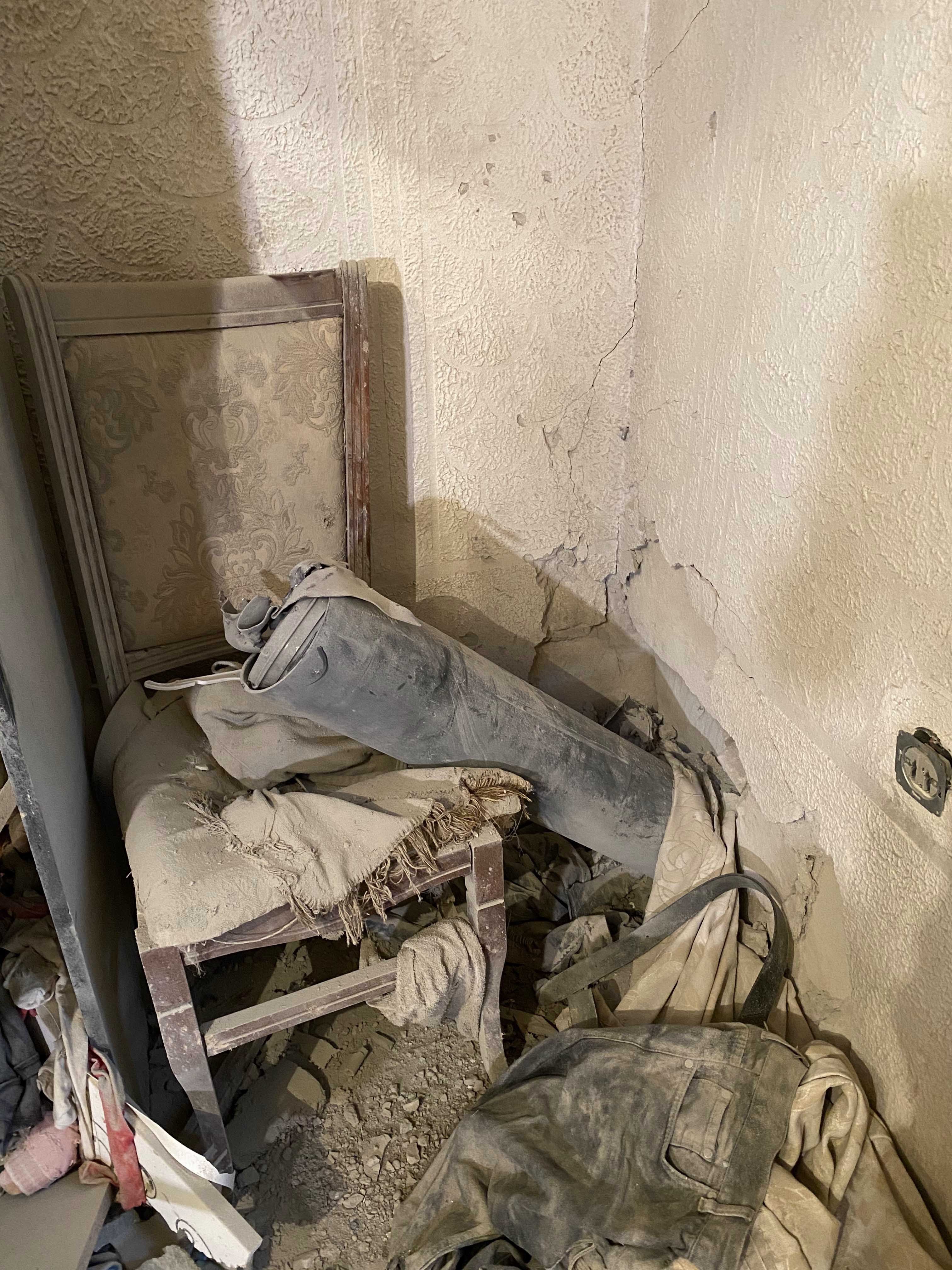
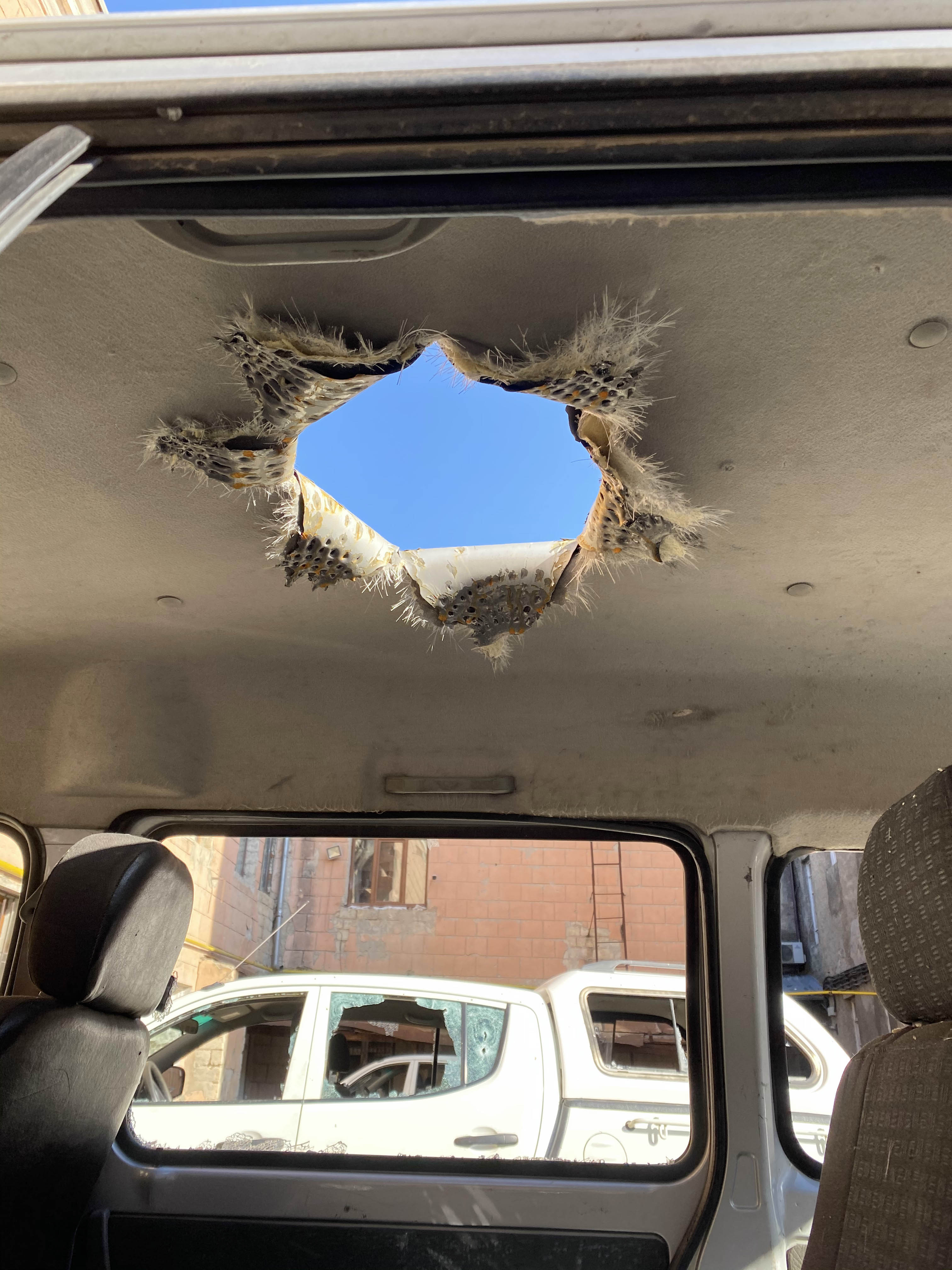
Other materials on this subject
- Russian forces have clearly failed in their duties: senators press Biden Administration to break Azerbaijan’s blockade The United States cannot stand aside while the Aliyev regime callously threatens the lives of Nagorno-Karabakh’s citizens, and must hold Azerbaijan to account for blocking a civilian population’s access...
- US calls for the full restoration of free movement through the Lachin Corridor "We remain concerned about impeded access to the Lachin Corridor and the humanitarian implications of this situation. This sets back the peace process and undermines international confidence. We call for...
- Azerbaijani forces violate the ceasefire in Artsakh The ceasefire violation was reported to the command of the Russian peacekeeping troops.
- Azerbaijani units violate ceasefire in several directions, Artsakh’s Defense Ministry says The Armenian side has no losses. The incidents of ceasefire violations were reported to the command of the Russian peacekeeping troops.
- Russian Diplomat Reassures Armenians Over Corridor In Karabakh "The parties are in direct contact, and I assure you that the peacekeepers will not move a single centimeter until there is a new corridor," Seleznyov said.
-
 17:08
17:08The regular session of the Anti-corruption Policy Council takes place in Jermuk
-
 15:05
15:05The Prime Minister sends congratulatory messages to the supreme leader of Iran and the President of Iran
-
 11:11
11:11Armenia sends earthquake aid to Turkey
-
 10:43
10:43Commemoration of the Pontiff St. Sahak Partev
-
 09:16
09:16Some roads are closed and difficult to pass in Armenia
-
 19:55
19:55Phone conversation of the Foreign Minister of Armenia with the U.S. Assistant Secretary of State for European and Eurasian Affairs
-
 18:30
18:30Prime Minister Pashinyan and President Khachaturyan meet
-
 18:20
18:20Ararat Mirzoyan with Co-Chairman of the OSCE Minsk Group of France Brice Roquefeuil
-
 17:01
17:01Humans could land on Mars within 10 years, Musk predicts
-
 16:45
16:45France, US urge 'immediate' end to Nagorno Karabakh blockade
-
 16:01
16:01Blockaded Nagorno Karabakh launches fundraiser to support quake-hit Syria
-
 15:59
15:59Earthquake death toll in Turkey rises to 18,342
-
 15:43
15:43Ararat Mirzoyan Held a Telephone Conversation with Sergey Lavrov
-
 15:06
15:06French president rules out fighter jet supplies to Ukraine in near future
-
 14:47
14:475 Day Weather Forecast in Armenia
-
 14:44
14:44President Vahagn Khachaturyan wrote a note in the book of condolences opened in the Embassy of Syria in Armenia
-
 14:20
14:20Azerbaijan’s provocations impede establishment of peace and stability – Armenian FM tells Russian Co-Chair of OSCE MG
-
 12:57
12:57France representation to OSCE: Paris calls on Azerbaijan to restore freedom of movement through Lachin corridor
-
 11:40
11:40Command of Kosovo forces highly appreciated preparation of Armenian peacekeepers
-
 10:16
10:16The United States withdrew from sanctions against Syria for six months the provision of assistance after the earthquake
day
week
month
Humidity: 81%
Wind: 0.51 km/h

